IRS Provides Transition Period for SECURE 2.0 Act Roth Requirement
PayrollOrg
AUGUST 28, 2023
The IRS has announced an administrative transition period to extend until 2026 the new requirement that additional elective deferrals made by higher-income participants in retirement plans be designated as after-tax Roth contributions.


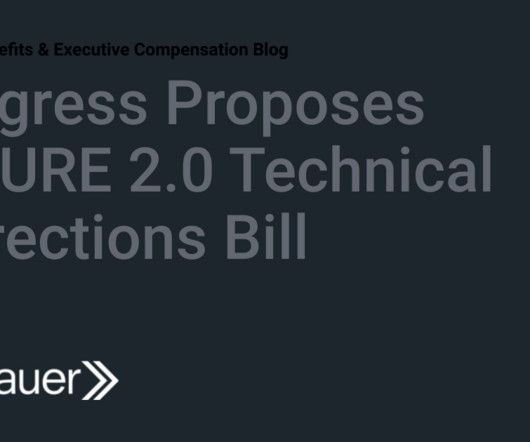


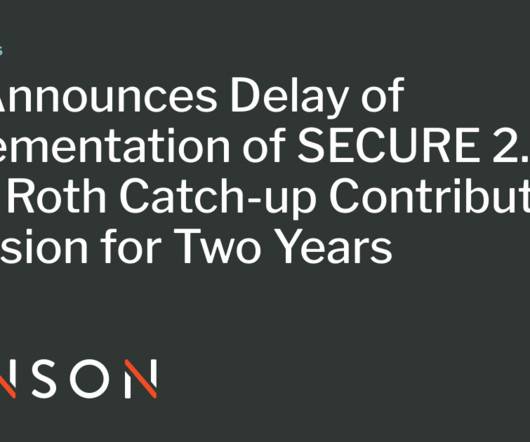




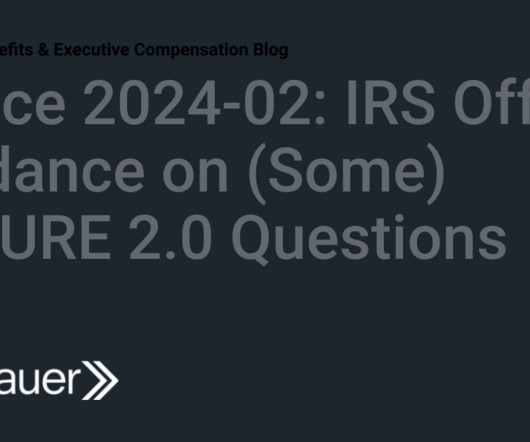
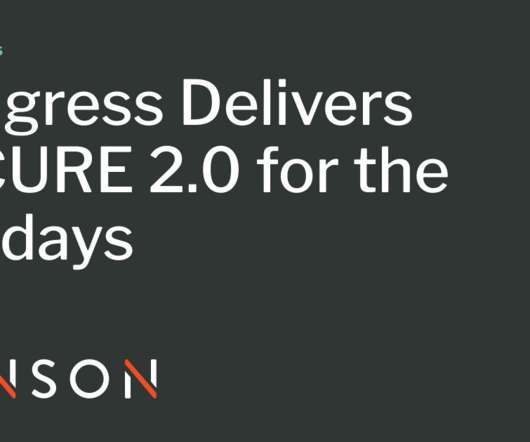
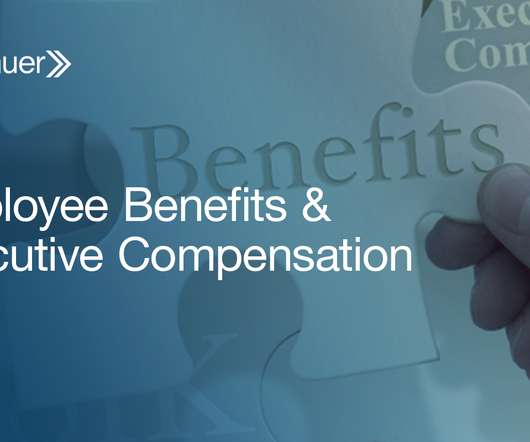








Let's personalize your content